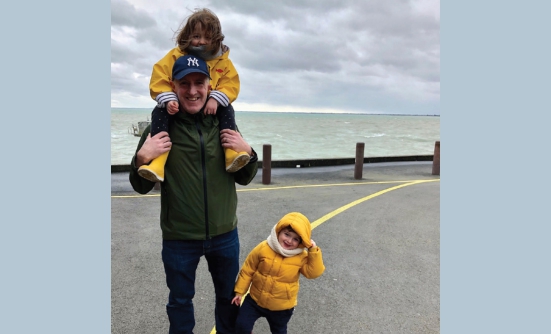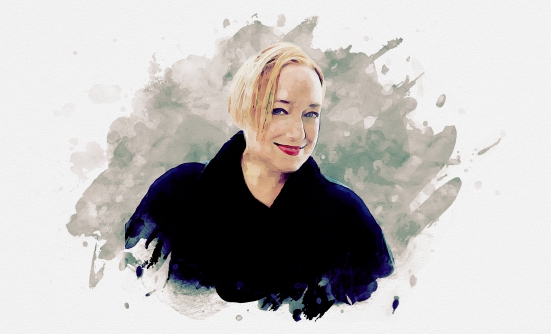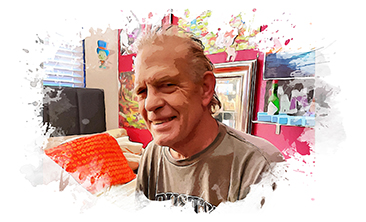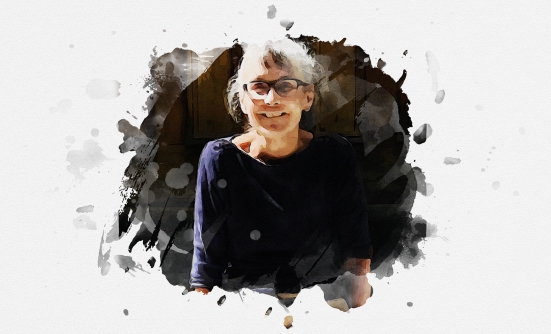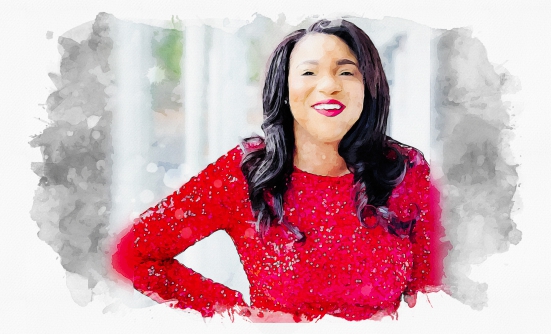In so many ways, cancer was a gift. It has changed so many things for me. At the practical level, I used to work 20-hour days as an Assistant Dean of a business school (after dinner until 1 ) to get my e-mail inbox to zero. Then I’d get up at 5 or 6 and do it all over again. That seemed normal for so long. But once I got sick, I said, “Something’s got to give; I really have to start treating myself better.”
The week after I was diagnosed with cancer, my inbox had 1,000 messages. Today, it has 17,000 e-mails, and I’m okay with that. I put an end to my second workday, and I now get home early to spend time with my family, not e-mails. Those on their deathbed don’t say, “If only I’d done more e-mails.”
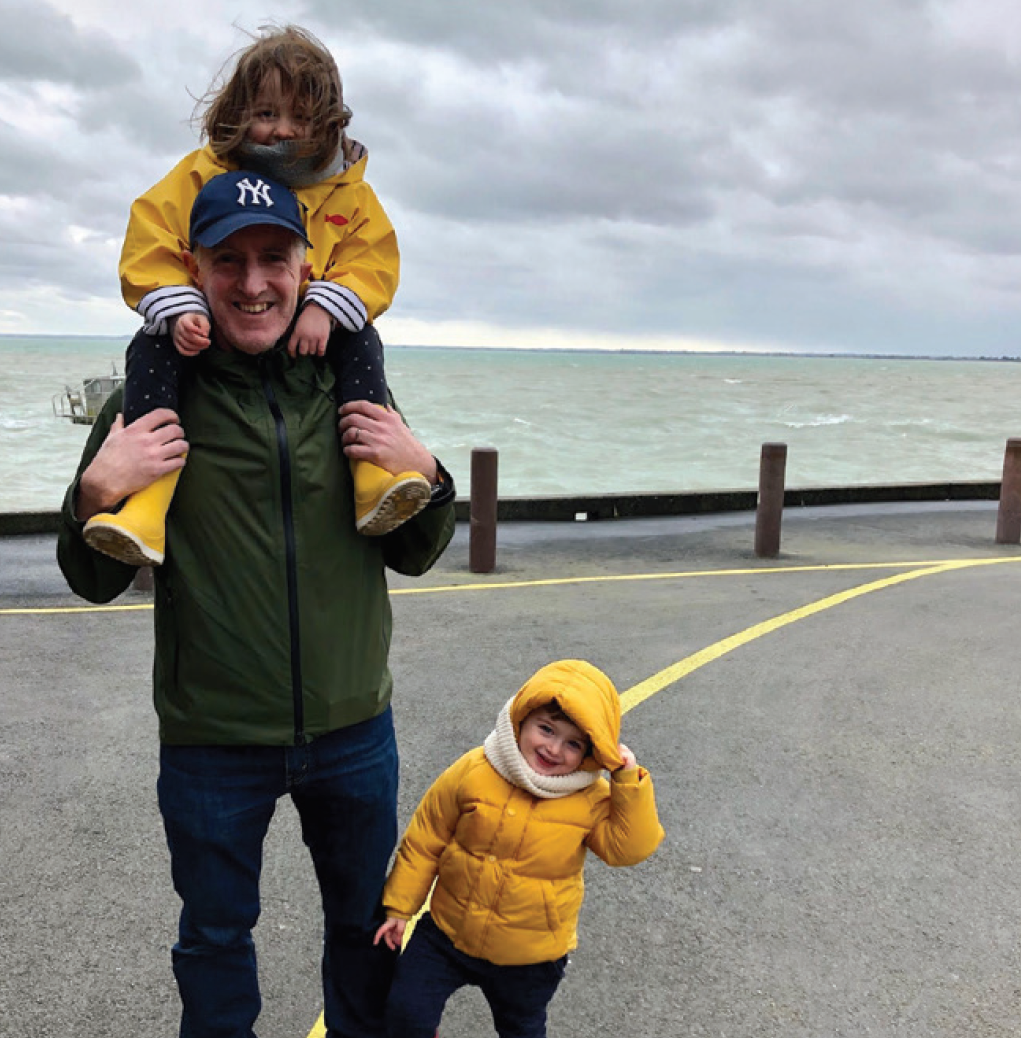
Diagnosis
In October 2012, I had skin issues that were not responding to treatment. My dermatologist ordered blood tests, which showed that my white cells count was very high. In the next 4 months, I had many tests and consultations to figure out what was going on.
In February 2013, on my 45th birthday, it was confirmed I had stage II chronic lymphocytic leukemia (CLL), without any mutations or deletions (which are often associated with a CLL diagnosis and can affect treatment choices).
Twist of Fate
Right after my diagnosis, I walked into the office of our school’s Dean to tell him that I was going to take a sabbatical. I said, “I’d like to talk with you about something.” He responded, “Great! I have something I want to talk to you about too.” Before I could tell him my plans, he asked me if I’d like to become Interim Dean.
He was being promoted to a ministerial position for a year. The next thing I knew, I was the Dean. Ironically, as I tried to reduce my workday hours, the intensity and stress of my work ratcheted up. And 8 years later, I’m still the school’s Dean. The universe often reserves us strange twists of fate.
Weighing My Options
At that point, I faced one of the hardest decisions. A rising star oncologist in France told me she could enroll me in a clinical trial for the new “gold standard” chemotherapy— the newest, best treatment. I felt I was being given the Willy Wonka golden chocolate bar.
But another hematologist I consulted in the French public health system suggested the “wait-and-see” approach. He said I had time and he wanted to get a baseline first, adding that the problem with new frontline treatments is that no one knows what to do if a second-line treatment is needed. It felt so wimpy not going for the new treatment and potential cure, because I wanted to attack it, beat it, and move past it. But I came to terms with the wait-andsee approach, which proved to be wiser than rushing into treatment. And this gave me the greatest gift of all, the time to have 2 children before starting any treatment!
In the years after my diagnosis, I had ups and downs with disease progression. CLL often makes the respiratory tract sensitive to all kinds of infection. Three years ago, I had fluids in my lungs, which led to a bronchoscopy and a lung wash; then 2 years ago, I got a very bad sinus infection, and my wife insisted I go to the emergency department. I anticipated a 3-hour waste of a day; instead, I spent 3 weeks in the hospital. I was hospitalized in one hospital, operated on in another, and then transferred back to the first. I ended up losing my sense of smell and taste, as well as 30 pounds.
Starting Treatment: A Stroke of Luck
After this, my hematologist thought that it was time to start treatment, because my CLL-related immunosuppressed status made me susceptible to infections, including the sinus infections. After my diagnosis, I also had hypogammaglobulinemia (a lack of gamma globulins), which made me even less resistant to infections. I called this the “butterfly effect,” someone sneezes in Brazil and I catch a cold.
Just before I was to start treatment, the FDA authorized a new front-line combination therapy. And in an unprecedented move, the French health authority quickly followed suit. For the past year and a half, I have been receiving the oral BCL-2 inhibitor, venetoclax (Venclexta), initially in combination with the immunotherapy drug, rituximab (Rituxan). This treatment is usually limited to 2 years, but if the person has no minimal residual disease (or zero MRD), the treatment can be stopped sooner. After 1 year, my bloodwork showed zero MRD, so I may be able to discontinue treatment soon. I also inject gamma globulins into my stomach once a week on Sunday to bolster my immune system, which I may have to continue indefinitely. Had I followed the advice of the star oncologist, things would have looked very different, and I might not have benefited from this latest breakthrough in CLL. You need to have luck in the cancer you have; having CLL means I have one of the most-researched cancers today. Because I am younger than many patients with CLL, I am also in a better situation if the first treatment fails.
Treatment was a decision I needed to make myself. I remember deliberating at the time for days on end, not knowing what to do, and knowing that there was no right answer. I finally went with my intuition, against much of the advice I was getting, and I haven’t regretted it. As a result of this choice, my wife and I can thank my oncologist for having had the time to have 2 beautiful kids.
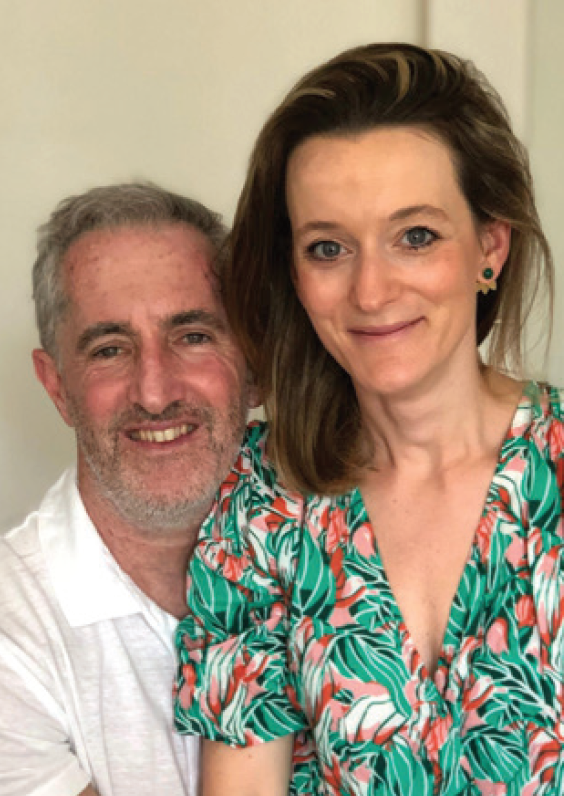
Coping as a Couple
We were married 6 months after I was diagnosed with CLL, and my cancer has brought my wife and me closer and made us better partners. At the same time, we’ve lost some of the carefree attitude that relationships encourage. We worry about what type of a house to buy, because I may not be here in 5, 10, or 20 years, and what will happen if I get the coronavirus, which is one more source of stress for people with cancer. It’s often not easy, and I think my wife bears more of the weight of those worries than me.
I talk with my wife about how to manage the stress of my job, while staying healthy during treatments. Because I carry the ticking time bomb of cancer, I want to have an impact. I want to leave an imprint, and the demands of the job have probably weighed more on my life than I’d like to admit. This is a constant trade-off between external and internal focus, between taking care of others and taking care of me.
A Turning Point
My mom had cervical cancer when I was a kid, which she survived, but my father died of lung cancer. At my parents’ home, we had a book called Cancer as a Turning Point. I never read it, but the title stayed with me to this day. I think of cancer as a “kick in the butt” to get my life together, to eat well, to meditate, to take things in stride.
I’ve tried my best to eat the healthiest I can, but I’m not always successful. I like sweets too much. Eating salad 16 hours a day, and still being hungry, didn’t really cut it for me. Going out with friends and sticking to a strict diet can be almost impossible, especially in France.
Part of it is wanting to feel as normal as possible when I socialize with friends. Other than my closest circle of friends, not many of my friends, and almost none of my colleagues, know I have cancer. I like to have people see me as I am rather than through the reality-distortion filter (for good or for bad) of “cancer survivor” or “sick with cancer,” and the baggage that each person associates with that.
Small Victories
For me, the cancer experience includes coming to terms with a shortened life expectancy, although I don’t know how much shorter that may be. Now, every time I—or my kids—have a birthday, I feel it’s a small victory: one more year. I think that everyone who has or had cancer just wants more time. The time I have left is an unknown, which makes me appreciate everything so much more.
Cancer has changed my perspective on parenting. I’m focused on, and hopeful about, getting my kids through the main stages of their lives. They’re not old enough to ask questions about cancer and what that means for us.
Every time I take the treatment on Sunday, they watch and touch the needles, and ask if it hurts, as if it’s a game. It’s weird, but it’s also a reminder that it’s a small miracle they’re here with me, and I’m here with them.
I’ve checked many boxes in my life: had a cool career, got married, had kids. It’s an amazing life, and if it were to end tomorrow, that would be okay. At the same time, I plan to do everything I can to be with my kids and wife for as long as possible.
Right before my father passed, he told me, “My dying isn’t a problem for me, because I won’t be there. But I’ll be bummed to not be there for you.” I now understand exactly what he meant.





